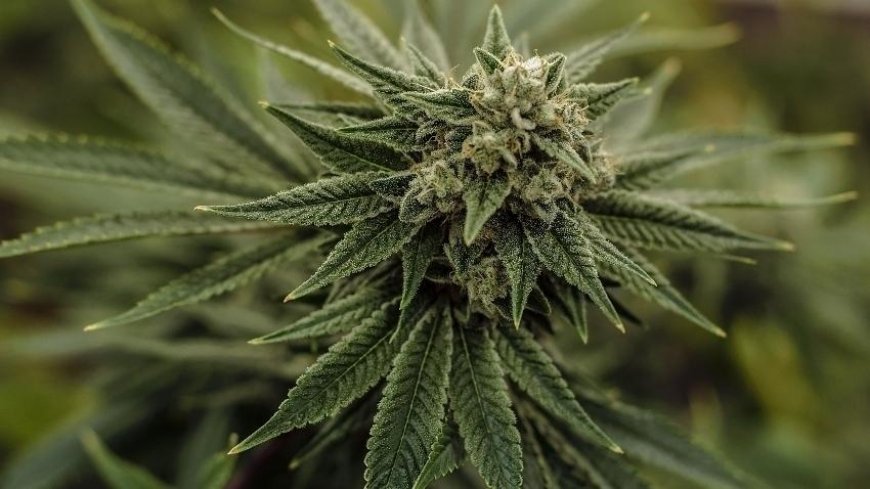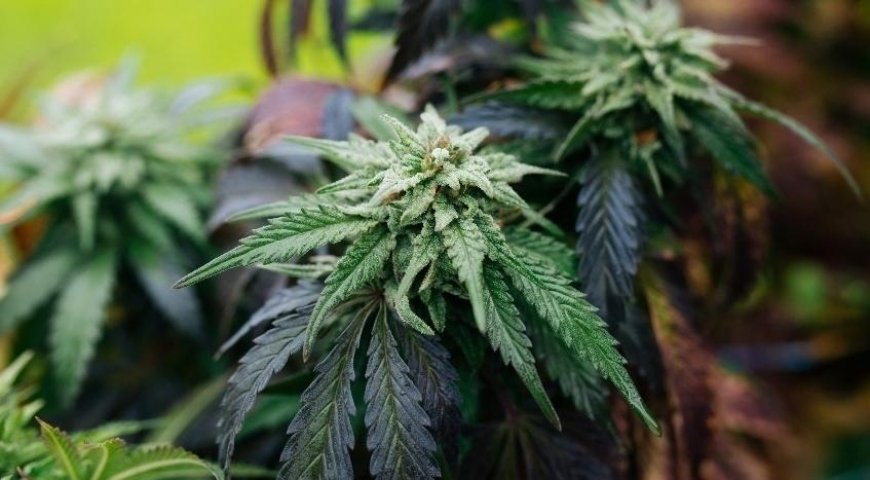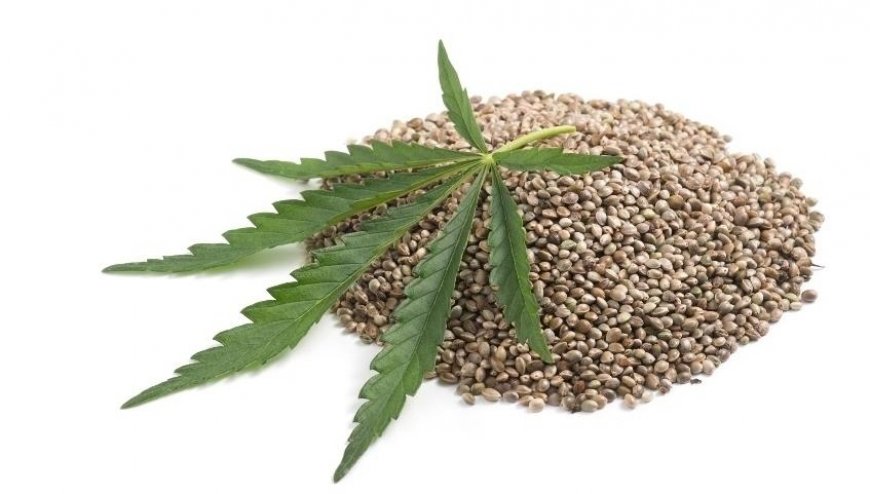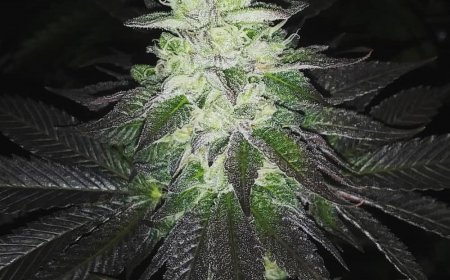Chronic Weed
Chronic weed's genetics, growing tips, effects on mental health, history, and flavors in our comprehensive guide to this potent strain.

Chronic weed has been a popular choice among cannabis enthusiasts for years, thanks to its potent effects and unique flavor profile. This strain has an interesting history that is worth exploring for both growers and users alike.As you delve into the world of chronic weed, you'll learn about its genetics and lineage, which contribute to its distinct characteristics.
Understanding how to grow this plant can be rewarding for those looking to cultivate their own supply or simply appreciate the process behind it.Unearthing the potential ramifications of chronic weed on mental health conditions necessitates an understanding of its THC, CBD, and other cannabinoid levels.
Furthermore, we will discuss the various flavors one might experience when consuming this strain. So sit back and get ready for an insightful journey into the fascinating realm of chronic weed!
Table Of Contents:
- Overview of Chronic Weed
- The Legendary History of Chronic Weed
- The Genetics and Lineage of Chronic Weed
- How to Grow Chronic Weed: Essential Tips
- THC, CBD, and Other Cannabinoid Levels
- Experience the Effects of Chronic Weed
- The Flavor of Chronic Weed: A Sensory Experience
- FAQs in Relation to Chronic Weed
- Conclusion
Overview of Chronic Weed
Welcome to the realm of chronic weed, an intense and widely-loved cannabis strain that has enthralled countless recreational cultivators and users. Known for its unique taste, aroma, and powerful effects, chronic weed is a must-try for anyone looking to expand their cannabis horizons. In this section, we'll dive into what makes this strain so special by exploring its characteristics and highlights.
Chronic weed is often praised for its well-balanced mix of indica and sativa traits, offering users an enjoyable combination of both physical relaxation and mental stimulation. This hybrid strain typically boasts high THC levels ranging from 15% to 22%, making it ideal for those seeking strong psychoactive effects without being too overwhelming. Additionally, chronic weed's CBD content tends to be on the lower side (less than 1%), which means it may not be as effective in treating certain medical conditions compared to strains with higher CBD levels.
- Aroma: One notable characteristic of chronic weed is its distinct aroma profile - expect a pungent smell with earthy undertones accompanied by hints of sweet fruitiness.
- Taste: The flavor profile mirrors the scent closely; when smoked or vaped, you can anticipate tasting rich earthy flavors combined with subtle fruity notes that linger on your palate after exhaling.
- Appearance: Visually speaking, chronic weed features dense buds covered in frosty trichomes that give off an enticing sparkle under light exposure. Its color palette consists mainly of deep greens mixed with vibrant orange hairs (or pistils).
The versatility offered by this balanced hybrid makes it suitable for a wide range of users, from casual consumers looking to unwind after a long day to more experienced enthusiasts seeking an uplifting yet relaxing experience. Chronic weed has certainly made a name for itself amongst cannabis aficionados, due to its distinctive mix of flavors and impacts.
The Legendary History of Chronic Weed
Chronic weed, the perfect blend of indica and sativa genetics, was created by Serious Seeds in Amsterdam during the early 90s.
It's believed to be a cross between Northern Lights, Skunk #1, and AK-47, each contributing unique characteristics to its exceptional flavor and balanced effects.
In 1994, just two years after its creation, chronic weed won third place at the High Times Cannabis Cup, solidifying its place in cannabis history.
- Parent Strains: Northern Lights x Skunk #1 x AK-47
- Awards: Third place winner at High Times Cannabis Cup (1994)
- Variations: White Chronic, Sweet Chronic, and Strawberry Chronic
Chronic cannabis continues to be a favorite amongst users for both recreational and medicinal purposes, possessing an iconic place in the world of marijuana varieties.
The Genetics and Lineage of Chronic Weed
Chronic weed is a popular and potent cannabis strain with a balanced hybrid of both indica and sativa properties, resulting from a unique combination of three well-known strains: Northern Lights, Skunk #1, and AK-47.
The Northern Lights strain offers relaxation and pain relief, while Skunk #1 provides uplifting cerebral effects, and AK-47 adds energy without excessive anxiety.
- Northern Lights: Indica-heavy strain offering relaxation and sedation.
- Skunk #1: Sativa-dominant hybrid promoting uplifted moods and creativity.
- AK-47: Sativa-leaning hybrid adding energy without excessive anxiety.
Chronic weed's lineage can be traced back to Serious Seeds, a Dutch breeder known for creating high-quality strains with optimal THC and CBD levels and high yields.
Chronic weed has won multiple awards, including at the High Times Cannabis Cup, further solidifying its reputation as a top-tier hybrid strain.

How to Grow Chronic Weed: Essential Tips
Chronic weed is a potent strain with unique flavors that can be rewarding to grow, but it requires attention to detail.
- Indoor vs Outdoor Growing: Chronic weed thrives best when grown indoors under controlled conditions.
- Ideal Climate: Chronic plants prefer a warm climate with temperatures ranging between 70-85°F (21-29°C).
- Nutrients: Provide high-quality nutrients specifically designed for cannabis cultivation.
- pH Levels: Maintain proper pH levels between 6.0 - 7.0 in soil-based grows or slightly lower at around 5.8 - 6.2 if using hydroponics systems.
- Vegging & Flowering Periods: The vegetative stage lasts about four weeks, and the flowering period usually takes approximately eight weeks.
- Pruning & Training Techniques: Maximize yield and ensure even growth by implementing pruning and training techniques, such as topping or low-stress training (LST).
- Pest Control: Regularly inspect your plants for signs of infestation and use organic pest control solutions when necessary.
With dedication and proper care throughout the cultivation process, you'll be rewarded with high-quality chronic weed boasting its signature taste and aroma.
THC, CBD, and Other Cannabinoid Levels
Chronic weed is known for its potent effects due to the presence of various cannabinoids, including THC and CBD.
THC levels in chronic weed range between 18% and 22%, delivering strong psychoactive effects that contribute to the euphoric sensation often experienced by users.
CBD levels in chronic weed are relatively low, typically around 0.6%, but contribute to an overall balanced effect.
Minor cannabinoids such as CBG, CBC, and CBN also have important therapeutic properties that work together synergistically to provide more comprehensive benefits than any single compound could achieve on its own.
- THC: Ranges between 18% - 22%
- CBD: Approximately 0.6%
- Minor cannabinoids: CBG, CBC, CBN, etc.
The combination of these various cannabinoids in chronic weed is what makes it a popular choice among recreational users and those seeking relief from certain conditions.
The powerful psychoactive effects of the high THC content can provide a soothing, calming experience while stimulating creativity and concentration.
The presence of CBD and other minor cannabinoids contributes to an overall balanced experience with potential therapeutic benefits, inflammation reduction, or even sleep improvement.
It's essential to be aware of your tolerance levels when consuming this strain due to its high THC content - always start low and go slow.
Experience the Effects of Chronic Weed
Chronic weed is a popular choice among cannabis enthusiasts, offering a unique blend of uplifting and relaxing sensations.
Get ready for an invigorating cerebral buzz that inspires creativity and enhances focus.
Feel more sociable and talkative, making it perfect for social gatherings or collaborative projects.
- Euphoria: Experience feelings of happiness and euphoria.
- Relaxation: Enjoy a sense of relaxation without excessive sedation or drowsiness.
- Anxiety reduction: Manage anxiety symptoms by promoting relaxation and reducing stress levels.
Watch out for possible diverse adverse effects such as cottonmouth, dry eyes, dizziness, anxiety or accelerated heartbeat. But moderate consumption may not have significant long-term effects.
Start with a low dose and gradually increase until you find your optimal level.
With proper usage, chronic weed can provide an enriching cannabis experience tailored to your preferences.

The Flavor of Chronic Weed: A Sensory Experience
Chronic weed's taste is a perfect blend of earthy, sweet, and spicy notes that offer an unforgettable sensory experience.
- Sweetness: High levels of terpenes like myrcene and limonene produce fruity and citrusy flavors.
- Spiciness: Caryophyllene contributes peppery notes.
- Pine-like Aroma: Pinene imparts fresh pine scents and potential therapeutic benefits.
The aroma of chronic weed is equally alluring, with a powerful fragrance reminiscent of fresh pine trees mixed with undertones of skunky goodness.
Factors such as growing conditions, curing methods, and individual plant genetics can affect the flavor and aroma, but chronic weed consistently delivers a mouthwatering sensory experience.
Chronic weed provides a unique and tantalizing scent and flavor that can't be found anywhere else.
FAQs in Relation to Chronic Weed
What are the risks of smoking weed?
Smoking weed can lead to respiratory issues and an increased risk of mental health conditions like anxiety, but moderate consumption may not have significant long-term effects.
How long does it take for cannabinoid receptors to recover?
Cannabinoid receptors typically recover within a few weeks after ceasing cannabis use, but individual factors like metabolism and frequency of use can affect this timeline.
Does weed contribute to visceral fat?
Studies show that weed does not directly cause visceral fat accumulation, but excessive caloric intake due to increased appetite while using cannabis could contribute indirectly to weight gain if not managed properly.
Can edibles harm the heart?
Studies show that cannabis edibles can temporarily increase heart rate and blood pressure, but do not directly damage the heart under normal circumstances. However, regular users with pre-existing cardiovascular issues should exercise caution when consuming edibles as they might exacerbate their condition or trigger adverse effects.
Conclusion
Chronic weed is a popular strain of marijuana that has gained popularity among young adults, and it's not hard to see why.
With its impressive genetics and lineage, chronic weed is a strain that is sure to impress even the most seasoned of regular users.
Whether you're growing it yourself or just looking to try it out, there are plenty of resources available to help you get the most out of your experience.
So why not give chronic weed a try and see what all the fuss is about?
Just remember to use it responsibly and always follow your local laws regarding cannabis use.






































































































































